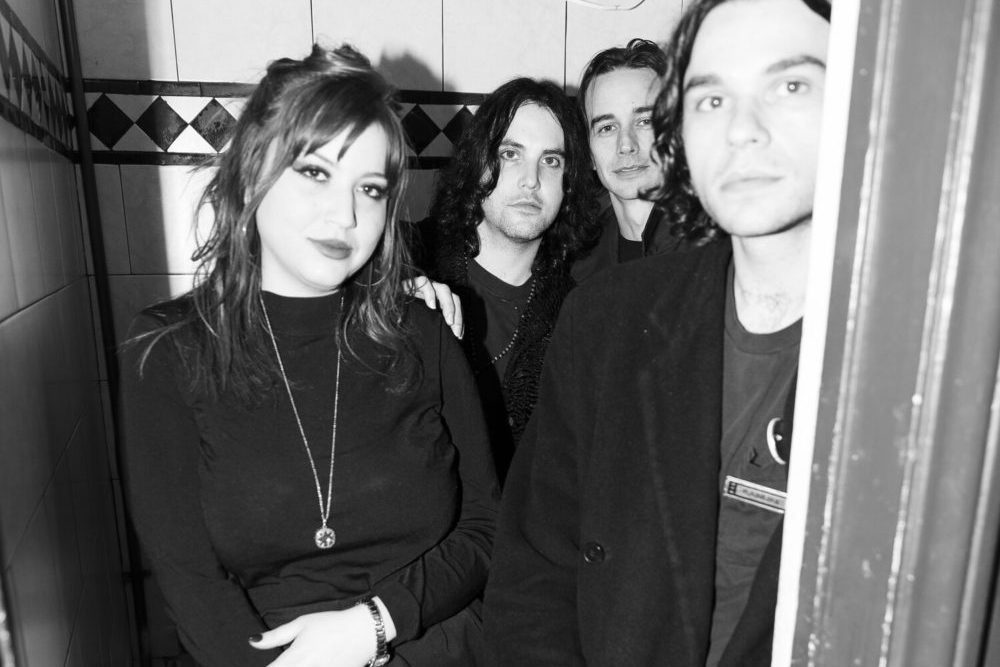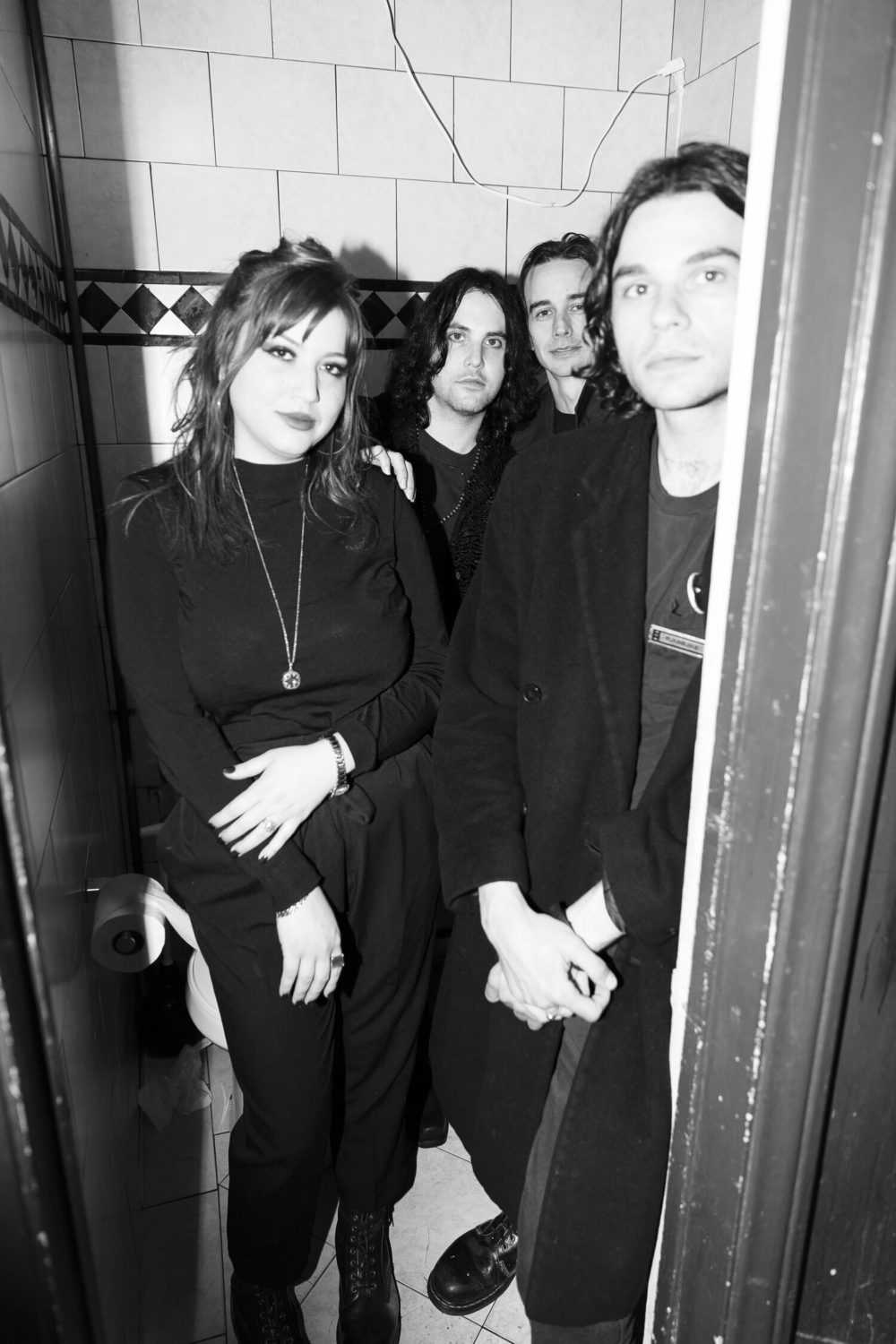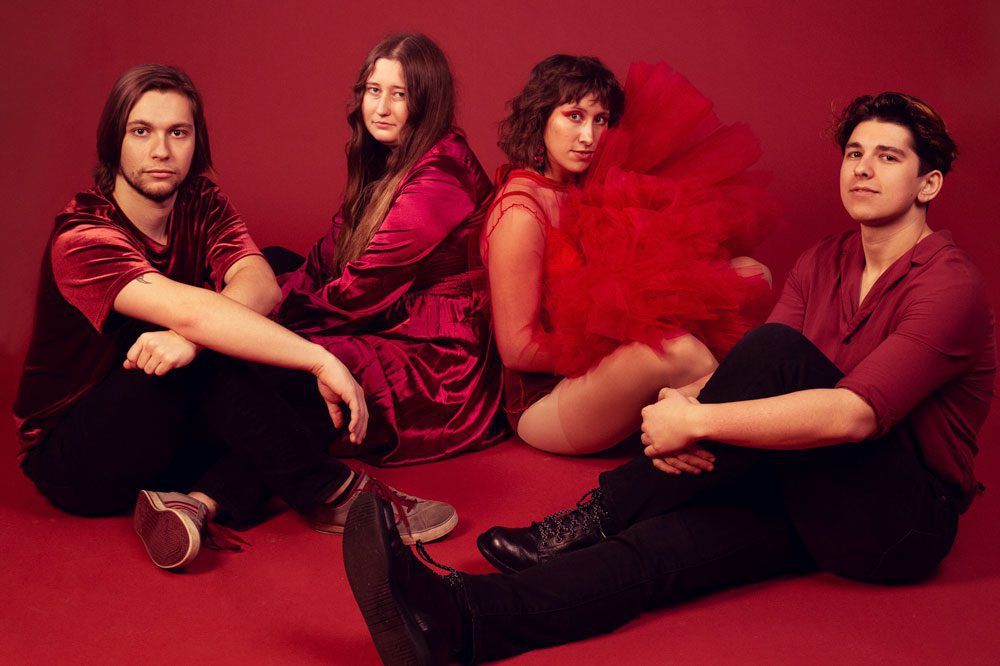

Gateway Drugs describe themselves as “drug pop,” which guitarist Liv Niles defines as “a sweet pop formula tethered to a deranged and disordered structure.” The band just put out their first album in five years, PSA, and while their earlier work highlighted dark ’80s influences like The Jesus and Mary Chain, their latest gives off beachy classic rock vibes with a modern garage-rock-meets-shoegaze twist.
Niles started the LA-based band in 2012 with her brothers, Gabe and Noa, along with their good friend, bassist/guitarist James Sanderson. “We’d played in other bands both together and apart but always knew we wanted to have a project of our own,” she says. “Our thought process is very similar — when we play music, we’re on the same page, which is difficult for a lot of bands. Creative trust is hard to find.”
They’ve been a musical family from the beginning; their father is Prescott Niles, bassist for The Knack. “There were always instruments laying around and records playing,” Niles remembers. “Our mom is a writer, so to have a musical and lyrical influence, we’re very lucky.”
The new album, produced by The Raveonettes’ Sune Rose Wagner, was recorded live in twelve days to create a “raw, sincere, chaotic, and primal” feel, says Niles. The title, PSA, is a tongue-in-cheek nod to the band’s name, which was inspired by a Breaking Bad episode where one of the characters refers to weed as a gateway drug. “They mentioned ‘gateway drug,’ and we looked at each other and said, Gateway Drug?! No, Gateway Drugs!” Niles remembers.
The title also serves to designate the album as a public service announcement about various issues the world is facing. “The Revolution Will Not Be Televised,” for instance, is about “homogenized rebellion” and the commodification of progressive ideas, explains Niles, who broke from her usual role to sing on another track, “I’m Always Around.” There’s no one designated vocalist in the band; the singer on any given song is usually “the one who hunts down and catches the initial idea,” she says.
So far, the band has created videos for three songs off the album, all of them based around simple concepts. The “Wait (Medication)” video displays various shots of the band performing the song, which is a reflection on excess, madness, addiction, and how “extreme highs give way to extreme lows,” according to Niles. “I’m Always Around” simply features the lyrics written with marker on a piece of paper, while “Slumber” — a song about end of a relationship with an emotionally unavailable partner — shows the band dancing as they wander the streets and is intended as a glimpse into the members’ daily lives.
“Videos can be pretentious, with the interest of the song not at heart,” says Niles. “We wanted to make a sincere attempt of visually accompanying the music, hopefully leaving a bit more for the listeners’ imagination.”
In the wake of the album release, the band is currently focused on writing new music, putting out more videos, and live-streaming shows and band hangouts. Even without the ability to share their new music for live audiences, the authenticity of the album’s production and videos provides the next best thing.
Follow Gateway Drugs on Facebook for ongoing updates.




